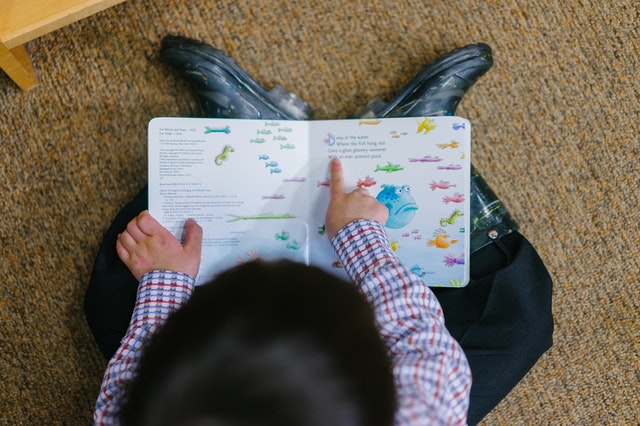There are increasingly wonderful pieces now on the web about reading instruction. Each of them possess strong and thoughtful ideas about how to teach reading down to the tiny elements that make it work. This is an enormous improvement over the previous “mysterious and magical” way that teachers thought children learned to read. “Give the child an authentic text and she/he will automatically LEARN” was a dangerous and widely believed poison that harmed almost half of our children. Now we know about all these elements that function as the critical pieces of learning to read. But most of the materials out there, while frequently citing the importance of fluency, do…
-
- Balanced Literacy, Decoding, Dyslexia, Ed School, Fluency, Learning Disabilities, NAEP, Phonemic Awareness, Phonics, Precision Teaching, Reading Instruction, Reading Wars, Science of Reading, Teacher Training, Whole Language
The Special Education Bubble
The reading world was recently rocked by an article from esteemed reporter, Emily Hanford. The longtime maven of whole language, Lucy Calkins, admitted she needed to change her Units of Study after decades of context clues, guessing at words, picture walks, and dismissing the science of reading. Of course, Calkins promptly responded with a statement that essentially tried to take credit for always being a phonics-minded practitioner (despite a great deal of evidence to the contrary). When you look at the latest NAEP data, the influence of decades of whole language-oriented instruction being the dominant pedagogy in the United States is readily apparent. According to this new data, roughly 63%…
-
The Misunderstanding that Sparked the Reading Wars
I just finished reading Anthony Pedriana’s Leaving Johnny Behind, an enormously important and under-appreciated book that I discovered by chance, thanks to a post on Facebook. (Social media certainly does serve a purpose other than being a black hole of procrastination from time to time!) The author is a retired teacher and principal who, quite by chance, found himself at the center of the reading wars: in an attempt to boost the reading performance of a class that was falling behind, Pedriana went against everything he had been taught and permitted one of the teachers in his school to implement a scripted reading program for a single short lesson each day.…
- Common Core, Dyslexia, Ed School, Fluency, Learning Disabilities, Lucy Calkins, Reading Instruction, Science of Reading, Uncategorized
Munchausen by Special Education
I think what we have is a system that doesn’t really, at the end of the day, want students to get better and improve.
- Decoding, Dyslexia, Fluency, Learning Disabilities, Lucy Calkins, Phonemic Awareness, Phonics, Precision Teaching, Reading Instruction, Reading Workshop, Science of Reading, Teacher Training, Three Cueing System, Whole Language
A Child is Not a Mollusk
In some sense, without evidence-based instruction, a child could be more like a mollusk in that they will withdraw from the learning process and build a shell to protect themselves from the emotional anguish of feeling less-than in the classroom.
-
Forget Sourdough Bread – My Pandemic Project is Precision Teaching!
Some learned to bake sourdough bread. Some took on home improvement projects. However, when it came time for me to choose a pandemic project, I decided to be a precision teacher. Unfortunately, it is not Instagram friendly, so I will simply write about it. Let me introduce myself. I am a seasoned teacher with thirteen years in the NYC public school system with licenses in French and ESL. In fact, according to the NYC ratings system devised by the infamous Charlotte Danielson, I am even considered a highly effective teacher. I have also had skin in the game long enough to watch the DOE follow many fads, particularly the fad of big data.…
- Decoding, Dyslexia, Fluency, Learning Disabilities, Phonemic Awareness, Phonics, Precision Teaching, Reading Instruction, Science of Reading, Teacher Training, Uncategorized, Whole Language
Of Fluency and Fritters
t’s been clear for a long time that something is very wrong with the way reading is taught, but if we genuinely want things to change, we need to take a hard look at what actually works—and building fluency beyond a doubt does so. We owe it to students to get this right: their success in high school and beyond depends on it.
- Decoding, Dyslexia, Fluency, Phonemic Awareness, Phonics, Reading Instruction, Sight Words, Three Cueing System, Whole Language
Tipping The Scale on Fountas & Pinnell
Fountas and Pinnell, as well as other balanced literacy programs, places a great deal of emphasis on this guided approach to reading and group work because, fundamentally, they see reading as a social activity, rather than an individual’s ability to decode text, something that happens in the confines of the brain in the reading circuit.
-
Boys Are Falling Behind in Reading Worldwide
The following article was written by Valerie Erde of Veridian Prep and is cross-posted from that website. Houston, we have a problem. Our boys and young men are falling behind generally in educational attainment. In fact, worldwide, women are enrolling in college and universities at much higher rates, are achieving higher grades in college, and completing degrees at higher rates than their male peers. One explanation for this disparity is that between the ages of 15-24, boys especially lag their female peers in reading and writing skills – skills necessary for strong performance in high school courses, on standardized tests, and in more rigorous college-level work. If you’re thinking “oh,…
-
Put a Finger on It! How Finger-Tracking Can Help Improve Children’s Reading
As adults, we tend to take a lot of things about reading for granted. For example, it’s obvious to us when book cover belongs in the front vs. the back. And everyone knows that English text is read from top to bottom and from left to right. What we forget, however, is that children don’t come into the world automatically knowing these things; they have to be taught, either indirectly (from observing adults and older children read) or directly (from being taught by a caregiver or a teacher). Even if children understand these aspects of reading well before they begin school, the actual act of turning squiggles on a page…








